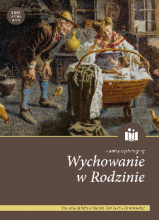Rodzina w polityce społecznej II Rzeczypospolitej.
Analiza wybranych kierunków działań
A family in social policy of the Second Polish Republic.
The analysis of selected activities
Author(s): Joanna Majchrzyk-MikułaSubject(s): History, Social Sciences, Education, Sociology, Social history
Published by: Zakład Historii Edukacji w Instytucie Pedagogiki Uniwersytetu Wrocławskiego
Keywords: family; a child; health care; the Second Polish Republic
Summary/Abstract: Aim: When World War I ended in 1918 the new, reborn Polish state faced a number of political, social and economic difficulties. The general poverty, the scarcity of people exhausted with years of occupation, and most of all, the disastrous health condition of children threatened the biological destruction of Polish society. It is interesting to describe the forms of supporting the youngest in the discussed historical periodas the issue is still topical. What is more, a number of solutions introduced at that time were groundbreaking and became the pattern for other European countries. Methods: While incorporating the direct source method of the public health care system for children the wider activities were presented. They were applied to the whole families and the youngest members of the families and based on policy of the state. As the article represents both pedagogical and historical realms the analytic and comparative methods of the analysis of the collected materials were applied. It is inevitable to refer to legislative materials, articles, statistics and interwar and contemporary subject literature.Results: A groundbreaking moment for the newly born state and its social institutions was the introduction, after regaining independence in 1918, of the social security system and public health care system. The issue of social welfare was legally solved by the introduction of the bill from August 16, 1923. The protection of maternity, infants, children and young persons became one of the most important issues of social welfare activity. Among the numerous supporting activities, obviously the most meaningful role was to provide basic living conditions for the poorest people. Previous philanthropic activity was insufficient and ineffective and it had to be replaced with planned, rational and organized social work. Social legislation, created with great effort, was aimed at creating the rights for each man to a decent human existence. At the same time, this legislation shaped and helped to create the state which would be responsiblefor its citizens. Conclusions: Undoubtedly, in the interwar period, not all the problems connected with health care of the family were solved. The size and intensity of social problems which affected the family, and most of all the children of the Second Polish Republic, required huge sums of money which were not available in the Poland which had been so damaged by the war. Nevertheless, the philanthropic activities which were undertaken during this period, and which concerned social health care, partially fulfilled their role and gave the beginning to the system of health care for the child and the family.
Journal: Wychowanie w Rodzinie
- Issue Year: XVIII/2018
- Issue No: 2
- Page Range: 83-99
- Page Count: 17
- Language: English, Polish

